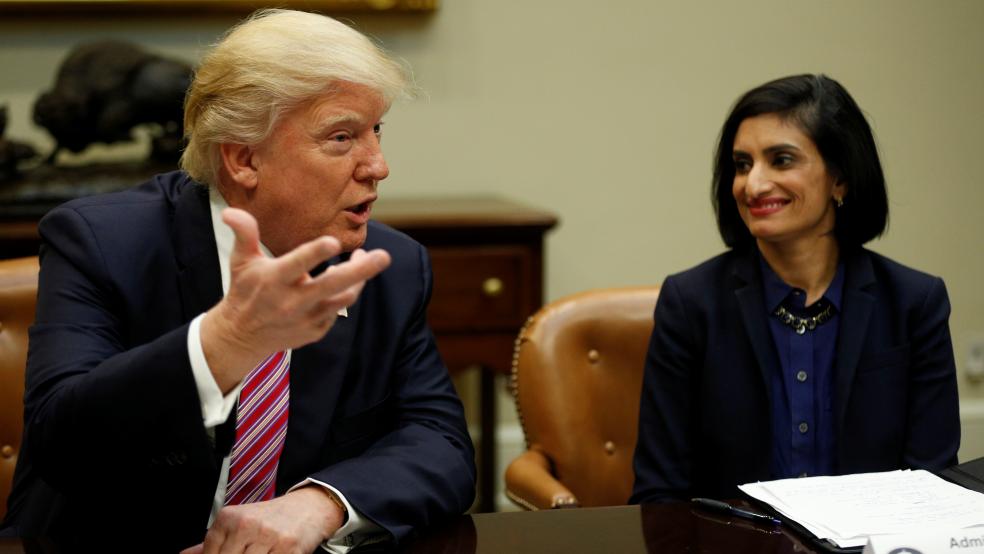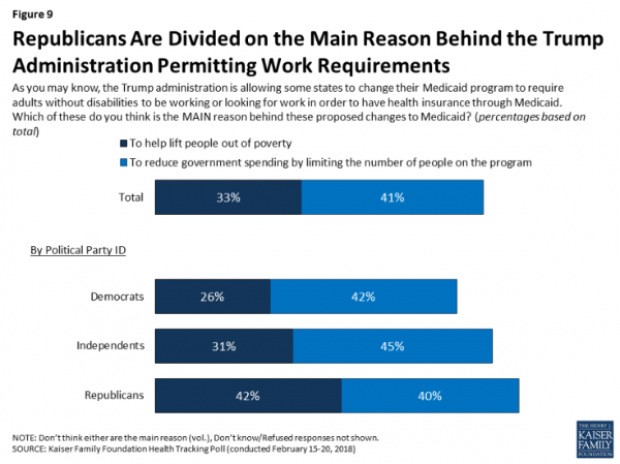Trump administration officials have argued that allowing states to impose work requirements on Medicaid beneficiaries will help more low-income Americans climb out of poverty so that they no longer need government assistance. Both Alex Azar, Trump’s new Health and Human Services secretary, and Seema Verma, who heads the Centers for Medicare and Medicaid Services, have described work requirements such as those that have been approved in Kentucky and Indiana as offering “a pathway out of poverty.”
But most Americans don’t believe that’s the real motivation behind the idea of imposing Medicaid work requirements, according to a new poll by the Kaiser Family Foundation. Just one in three people polled said they believed that the main reason for the proposed changes to Medicaid is to help lift people out of poverty. A greater percentage, 41 percent, believe the main goal is to cut government spending by reducing the number of people enrolled in the health-care program.
Republicans polled were narrowly divided on the question, with 42 percent saying the main goal was to provide incentives to work and 40 percent saying it was to reduce government spending.
“The findings suggest the public doesn't really believe the messaging from top Health and Human Services officials who are working with states to add more enrollment requirements to Medicaid,” writes Paige Winfield Cunningham in The Washington Post.
Beyond the messaging problem, though, there’s a more substantial policy issue, which Winfield Cunningham outlines: Even if conservatives at the federal and state levels are looking to cut government spending on Medicaid, which has claimed an increasing share of state general funds over the last two decades, work requirements aren’t likely to slash costs significantly given that most Medicaid recipients already work.






